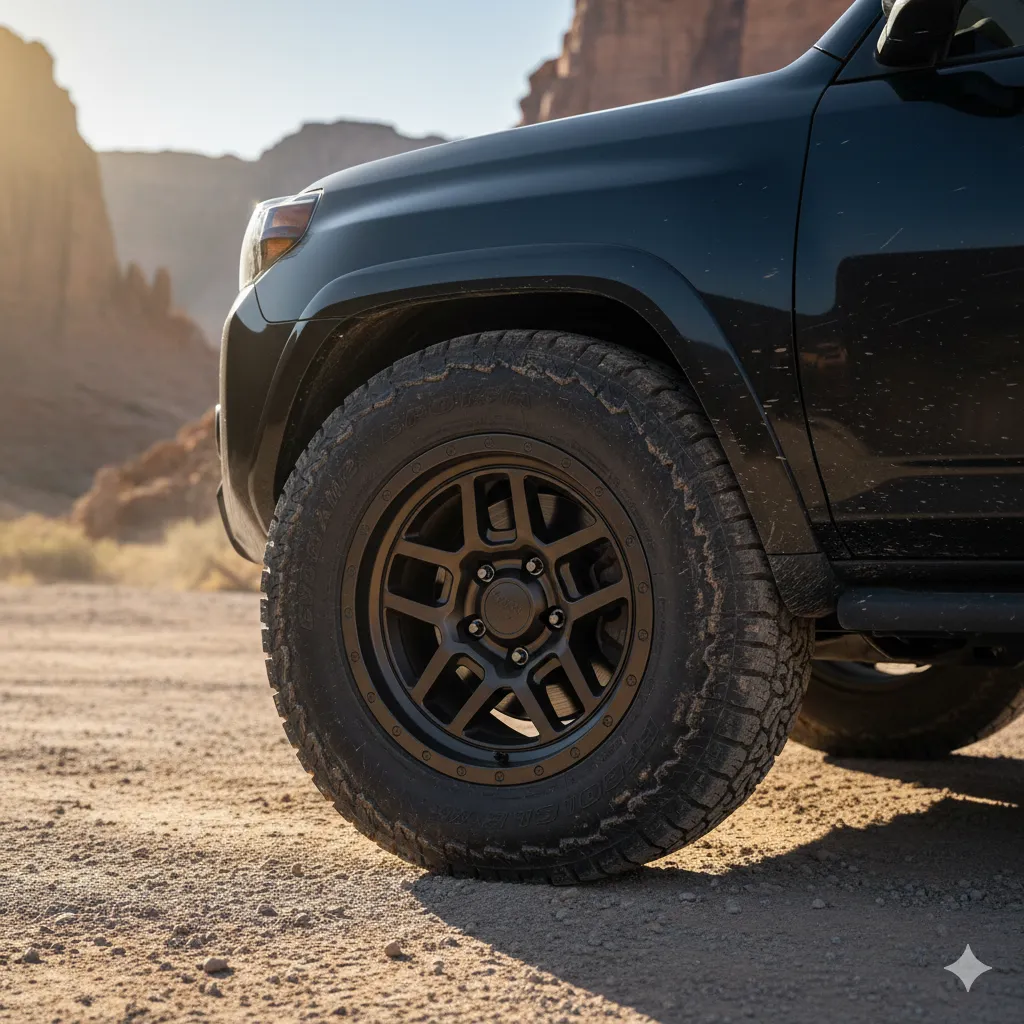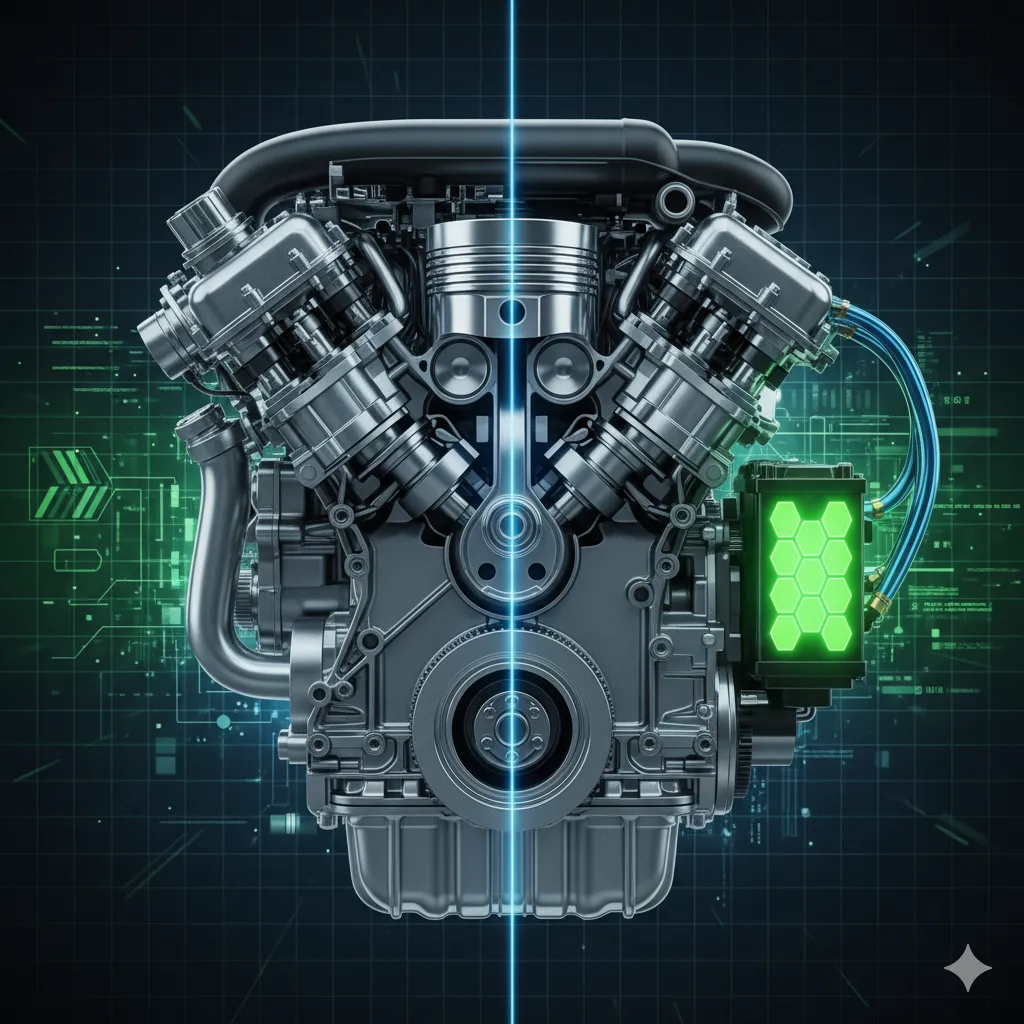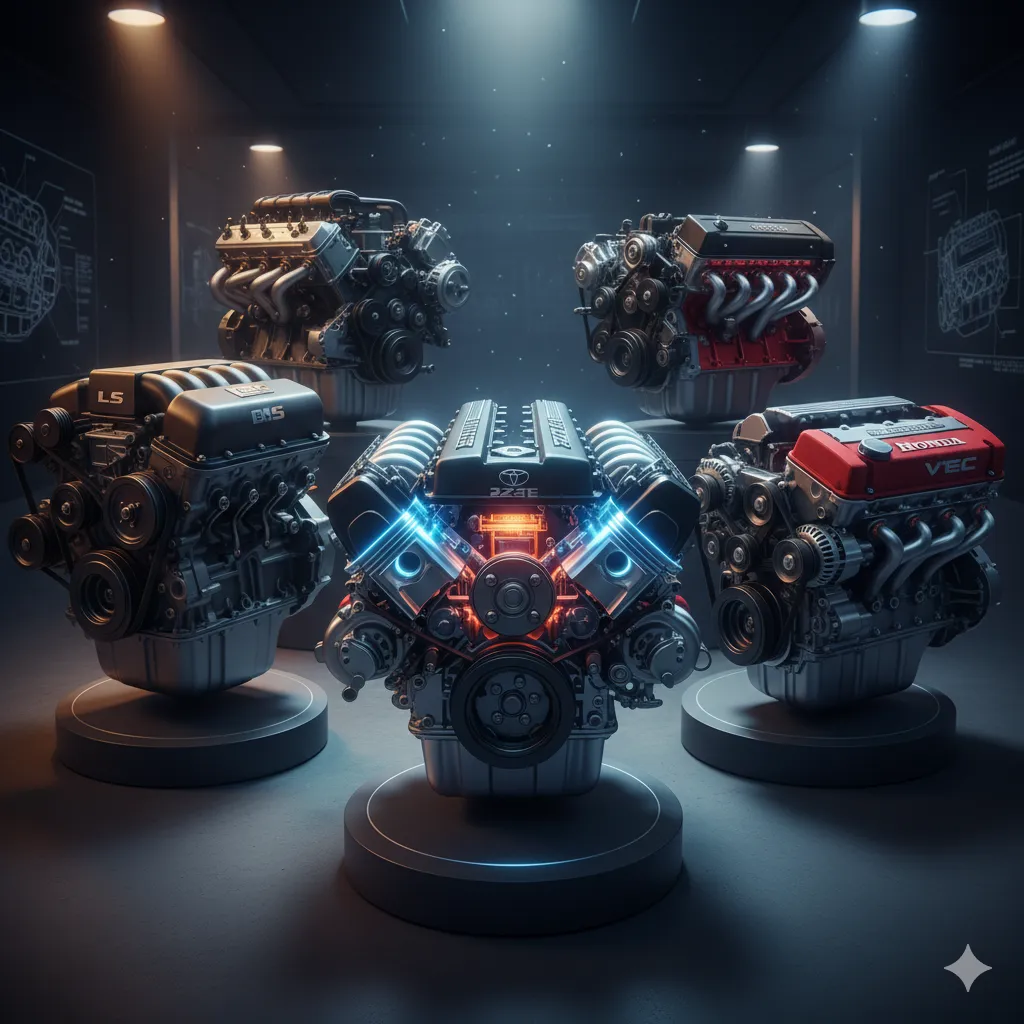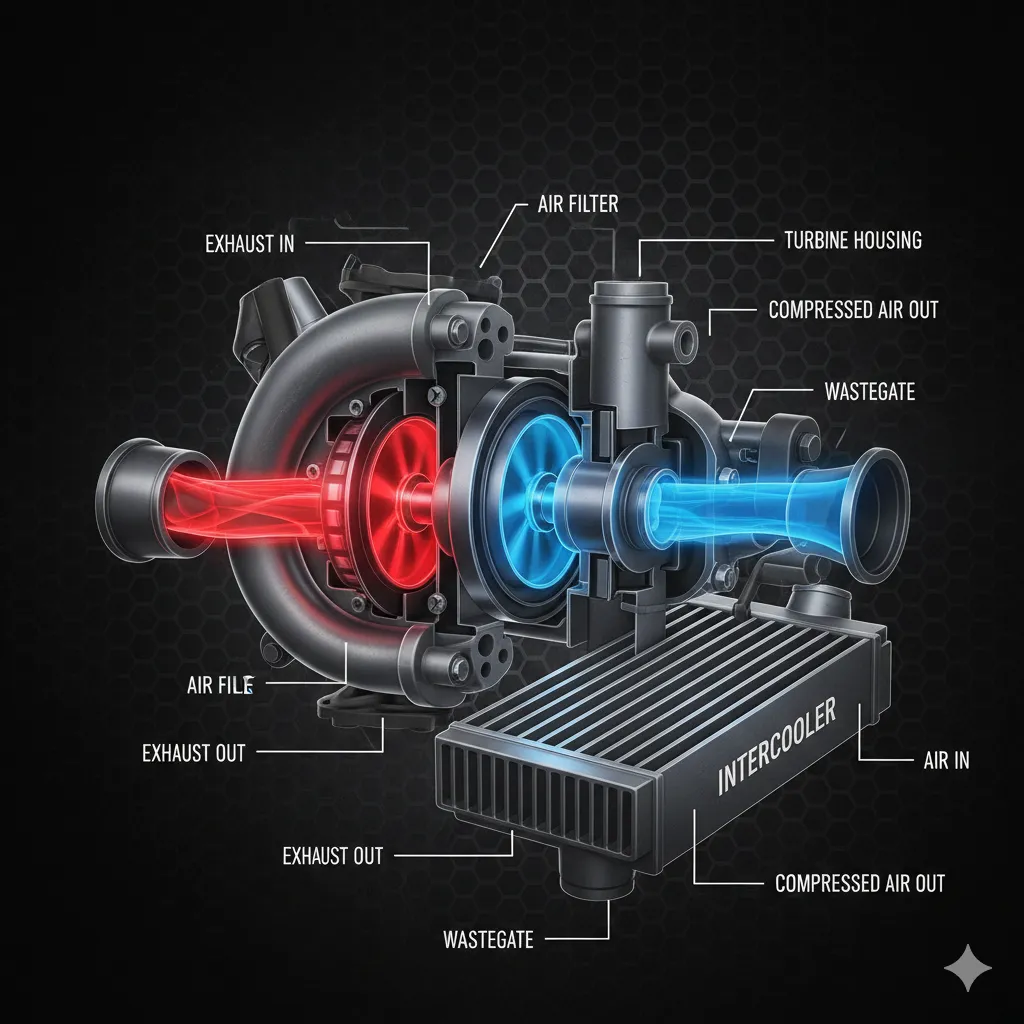
Choosing the Perfect SUV Wheels and Rims: The Ultimate Guide
Upgrade Your Ride: Finding the Best Wheels and Rims for SUVs
Your Sport Utility Vehicle (SUV) is a versatile machine, designed for family commutes, cross-country trips, and sometimes, a little off-road adventure. The wheels are the shoes of your vehicle, and just like footwear, the right pair makes all the difference in function and flair.
Choosing the best wheels and rims for SUVs requires balancing durability, weight, design, and budget. Whether you're aiming for rugged off-road toughness or sleek, urban elegance, making an informed decision is crucial. This article will serve as your definitive resource.
Understanding the Basics: Wheels, Rims, and Materials (H2)
While the terms "wheels" and "rims" are often used interchangeably, the rim is technically the outer edge of the wheel where the tire bead sits. The entire structure, including the spokes and hub mounting area, is the wheel. When shopping, you’ll typically hear the complete unit referred to as rims or wheels.
Key Materials for SUV Wheels (H3)
The material used in construction is the primary factor affecting the wheel's performance, weight, and price.
-
Aluminum Alloy Wheels: These are the most popular choice for modern SUVs. Alloy is a mixture of aluminum and other metals (like magnesium), making the wheels significantly lighter than steel. This reduction in unsprung mass improves handling, braking response, and fuel efficiency. They also allow for a vast range of aesthetic designs and finishes.
-
Best for: Daily driving, performance SUVs, and drivers prioritizing aesthetics.
-
-
Steel Wheels: Known for their extreme durability and low cost, steel wheels are typically heavier and lack the design versatility of alloy. Their strength makes them resistant to bending and cracking, especially in tough conditions.
-
Best for: Extreme off-roading, heavy-duty applications, and winter driving where damage is more likely.
-
-
Forged Alloy Wheels: The top tier of aluminum wheels. They are created by forcing a solid block of metal under extreme pressure, resulting in a much denser, stronger, and lighter wheel than a standard cast alloy wheel. They are also significantly more expensive.
-
Best for: High-performance SUVs, heavy towing, or serious off-road competitors who need maximum strength and minimum weight.
-
Wheel Construction: Cast vs. Forged (H2)
Beyond the raw material, the manufacturing process dictates the final strength and weight of your SUV wheels. This is a critical factor when choosing high-quality SUV rims.
Cast Wheels (H3)
Cast wheels are made by pouring molten metal into a mold. It is the most cost-effective manufacturing method, which is why most factory and entry-level aftermarket wheels and rims for SUVs are cast. While perfectly adequate for daily driving, the material can be less dense, making it slightly heavier and more prone to bending or cracking under severe impact compared to forged wheels.
Forged Wheels (H3)
Forging creates a highly compressed, non-porous structure. This results in a wheel that is both immensely strong and incredibly light. Forged wheels are ideal for SUVs that see rigorous use, such as heavy hauling or competitive off-roading, where strength and fatigue resistance are paramount. The higher price reflects the complex manufacturing process.
Flow-Formed (or Rotary Forged) Wheels (H3)
A hybrid method that starts as a cast wheel, but then the barrel (rim) is spun and pressurized at high heat. This process thins and compresses the metal, creating a lighter, stronger structure similar to a forged wheel, but at a more accessible price point. This offers a fantastic middle ground for drivers seeking a performance upgrade without the premium cost of a fully forged set.
Choosing the Right Style and Size (H2)
The right aesthetic will elevate your SUV's look, but you must ensure proper fitment for safety and performance.
Wheel Size (Diameter) (H3)
SUV wheels range dramatically, typically from 17 inches up to 24 inches or more.
-
Smaller Diameters (17"–18"): These are common for off-road setups. The smaller wheel allows for a tire with a larger sidewall (more rubber), which acts as extra cushioning, is better for airing down on trails, and offers greater durability against trail hazards.
-
Larger Diameters (20"+): These are favored for a street-performance or luxury look. They allow for a lower-profile tire, which can improve steering response and give the SUV a bolder appearance. The trade-off is often a harsher ride and a greater risk of wheel damage from potholes.
Understanding Offset and Backspacing (H3)
Offset is the distance from the hub mounting surface to the wheel's center line, and it is crucial for ensuring the wheel fits without rubbing against the suspension or fenders.
-
Positive Offset: The mounting hub is closer to the street side (outer face) of the wheel. Common on front-wheel drive and many modern SUVs.
-
Negative Offset: The mounting hub is closer to the vehicle side (inner face) of the wheel, pushing the wheels further out. This is popular for lifted trucks and off-road SUVs to achieve a wider, aggressive stance.
Always consult your vehicle's specifications or a professional to determine the correct offset and bolt pattern for your specific model.
Top-Rated Brands for SUV Rims (H2)
When selecting the best SUV wheels and rims, several brands consistently stand out for quality, innovation, and design.
| Brand | Primary Focus | Best For |
| Fuel Off-Road | Aggressive Styling, Off-Road Durability | 4x4 enthusiasts, lifted SUVs, bold aesthetics |
| Black Rhino | Heavy-Duty, Military-Inspired Strength | Rugged terrain, heavy-duty utility, endurance |
| American Racing | Classic Designs, Street and Performance | Timeless looks, hot rods, street-performance SUVs |
| KMC Wheels | Sporty, Balanced Performance | Urban drivers, modern SUVs, all-rounder use |
| Fifteen52 | Rally-Inspired, Lightweight Builds | Sporty handling, unique European-style design |
FAQs about SUV Wheels and Rims (H2)
Q1: Should I get steel or alloy wheels for my SUV?
A: If your SUV is primarily used for daily driving and you want better performance and looks, alloy wheels are best. If you frequently go extreme off-roading, live in an area with harsh winters, or prioritize cost and maximum impact resistance, steel wheels are a practical choice. For a mix of strength and low weight, consider a flow-formed alloy wheel.
Q2: Do larger rims (wheels) affect my fuel economy?
A: Yes, typically for the worse. Larger, heavier SUV rims and lower-profile tires increase unsprung weight and rolling resistance, forcing the engine to work harder. While the difference might be slight for high-quality, lightweight forged wheels, a heavier set of large, cast wheels will likely result in a noticeable drop in fuel efficiency.
Q3: What is "unsprung weight," and why does it matter for my SUV's wheels?
A: Unsprung weight refers to the weight of all the components not supported by the suspension (wheels, tires, brakes, etc.). Reducing unsprung weight is one of the best ways to improve a vehicle's performance. Lighter wheels and rims for SUVs allow the suspension to react faster and more effectively to road imperfections, resulting in better handling, a smoother ride, and quicker acceleration/braking.
Q4: Will changing my SUV's wheels void the warranty?
A: Generally, no. According to the Magnuson-Moss Warranty Act in the US, a manufacturer must prove that the aftermarket part (like new SUV rims) directly caused the failure of the covered component to deny a warranty claim. However, it’s always wise to use the correct size and professional installation to avoid fitment issues that could lead to a denied claim.
Conclusion (H2)
Selecting the best wheels and rims for SUVs is a crucial decision that impacts safety, performance, and style. By considering your driving environment—whether it’s the city asphalt, a dirt trail, or a mix of both—you can narrow down your options based on material (steel, cast alloy, forged alloy), construction (monoblock, two-piece), and size.
Invest in a quality set of SUV wheels and rims from a reputable brand like Fuel, Black Rhino, or KMC, ensure proper fitment, and you will not only transform the look of your SUV but also dramatically enhance your overall driving experience.
e) External Links
-
Tire Rack – Wheel Tech: (For detailed technical information on wheel construction and sizing)
-
J.D. Power – Vehicle Ratings: (For an authoritative, neutral perspective on vehicle/part quality)
-
SEMA (Specialty Equipment Market Association): (For industry standards and aftermarket parts safety information)




